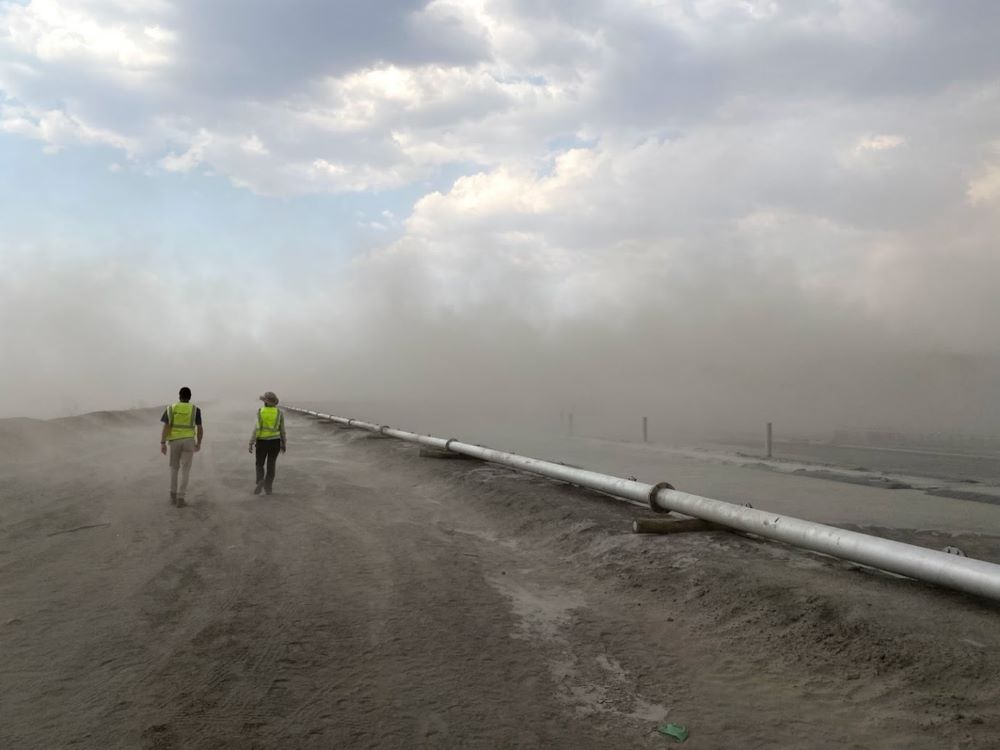Mines embrace digital innovations for safer tailings dams – SRK


Technological and digital innovation is set to drive industry best practice in tailings dam management, spurred on by the Global Industry Standard on Tailings Management (GISTM) published three years ago.
While many mining companies have invested considerable effort in meeting the first GISTM compliance deadline of August 2023, the real work starts now, according to James Dutchman, principal engineering geologist at SRK Consulting – which celebrates 50 years of consulting engineering excellence this year.
Considerable innovation is underway as mining companies embraced the general trend of digital transformation to find efficient solutions for a higher standard of tailings storage facility (TSF) management. Much of this focused on improved monitoring of TSF performance through more robust monitoring techniques, digital data generation and communication, and advanced data analytics.
Dutchman noted that a key benefit of the new digital systems is how they facilitate increased data visibility, and auditability, as well as developing cost-efficient projects. A more data-driven approach to TSF performance and management provides the client with better insights into their risk profile. This also enhances the value of the engineering consultant’s contribution, as companies like SRK can provide vital data assurance followed by a depth of insight and advice based on the detailed data available.
Among the recent innovations in the tailings space has been the application of interferometric synthetic aperture radar (InSAR) to monitor surface deformation, and this has now become quite common as a surveillance and monitoring technique. The introduction of digital inclinometers is also becoming an essential tool to monitor slope stability.
The new standard clearly calls for a much higher level of detail in the data and frequency to improve operators’ understanding of the drivers that affect the facility’s risk profile. While the industry’s recent work towards conformance has focused on improving compliance and management, there is still some way to go in pursuit of a fully integrated digital solution for TSFs.
In-situ monitoring technology such as vibrating wire piezometers and inclinometers have become significantly more sophisticated, he pointed out, and incorporate telemetry systems that can transmit data frequently and in real time. Developments like these have allowed this technology to be digitally integrated not only with their own cloud-based storage but with the clients’ own data acquisition systems.
The latest instrumentation relies on the internet of things (IOT) devices which are linked to loggers and a data gateway for seamless data transfer into a data lake environment or cloud. Many of these instruments can be integrated through an application programming interface (API) to the client’s enterprise resource planning (ERP) system.
Another crucial innovation of digital technology in the TSF space is automation and data management. These functions allow data to be stored, packaged, and communicated at varying levels of detail for different purposes and end-user. The data, its analysis and its results are open to stakeholders at various levels – providing a wider digital landscape to support broader requirements such as social and environmental aspects of the GISTM.
The first movers toward compliance with the GISTM requirements have been blue-chip mining companies who are members of the International Council on Mining and Metals (ICMM), the rest of the industry will soon have to follow suit.
“Investors, lenders and insurers have always been key stakeholders in the sector and hold considerable sway,” Dutchman said. “Now that the GISTM has been set as an industry benchmark, they will gradually demand nothing less from their smaller mining clients – as part of their responsible risk management strategies.”
Learn more about the expertise of SRK on www.SRK.com.
Comments